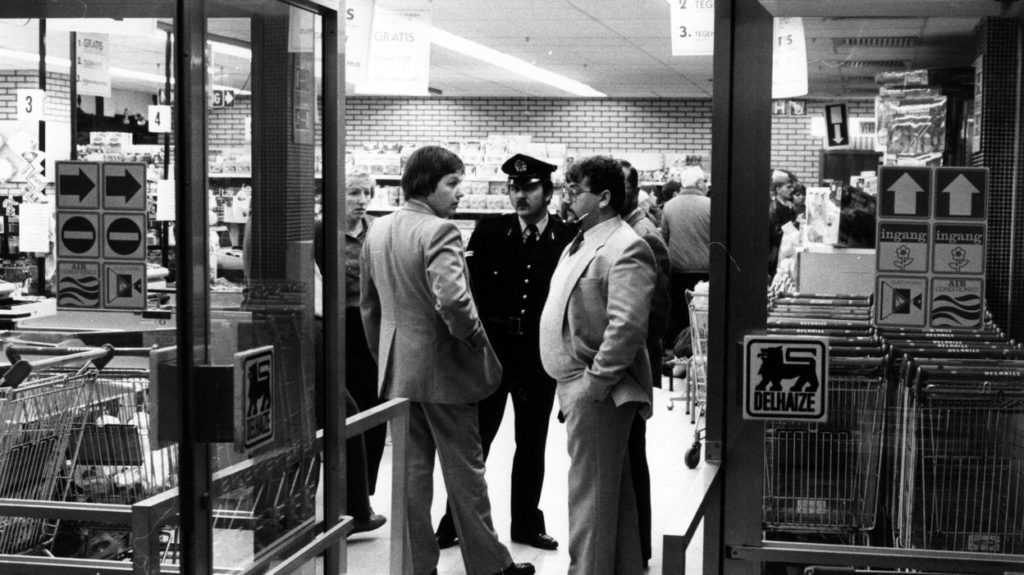Police investigating the series of unsolved attacks in the 1980s attributed to the gang known as the Brabant Killers have obtained a warrant to seize the archives kept by the widow of one of the victims.
Jan Palsterman was killed in the gang’s last major attack, on the Delhaize supermarket in Aalst in 1985.
His widow, Marie-Jeanne Callebaut, received a copy of the case file, as did the relatives of other victims. Now, according to her lawyer, investigators have taken possession of the file in order to be able to consult documents they can no longer find in the official case file.
At the time it was handed over to the widow, the dossier was 1.5m thick, and contained more than one million pages of evidence.
Over time, she added to it with newspaper cuttings, letters and documents of her own.
Callebaut is now a resident in a nursing home, in failing health, and has turned the archive over to a legal representative. She was unwilling to hand it over when investigators asked.
“She does not trust the justice system at all,” her lawyer said. “You can see why. They have been following false leads for 35 years and it does not seem that a solution is in sight.”
Between their first appearance in 1982 and the last – the Delhaize attack – in 1985, the gang was responsible for the deaths of 28 people, including Palsterman. None of those responsible has ever been brought to justice.
The motive for the attacks has never been figured out. Apparent robberies like the Delhaize attack turned out to involve little or no profit. Witnesses at the Delhaize attack described the killers firing randomly into the crowd. The theory rapidly took hold that the gang were actually targetting one of the victims, and used a mass killing to cover their real target.
Conspiracy theories abound on the case, perhaps the most florid attributing the crimes to a rogue group of extreme-right gendarmes intent on creating an atmosphere of national panic to speed the creation of a repressive regime of law and order.
Those theories aside, the fact remains that in 38 years – during which the statute of limitations was extended to keep the case open – no more is known now than was known when the first crime attributed to the gang, the theft of automatic weapons and ammunition from a gendarmerie barracks in Etterbeek, took place.
Investigators came back with a warrant to seize the archive from an investigating magistrate, in the company of an official from the federal prosecutor’s office, which is in charge of the case.
Detectives now hope to find something among the stacks of documents that will help them finally crack the case. The relatives of the victims, and the country as a whole, must hope so, too.
Alan Hope
The Brussels Times

